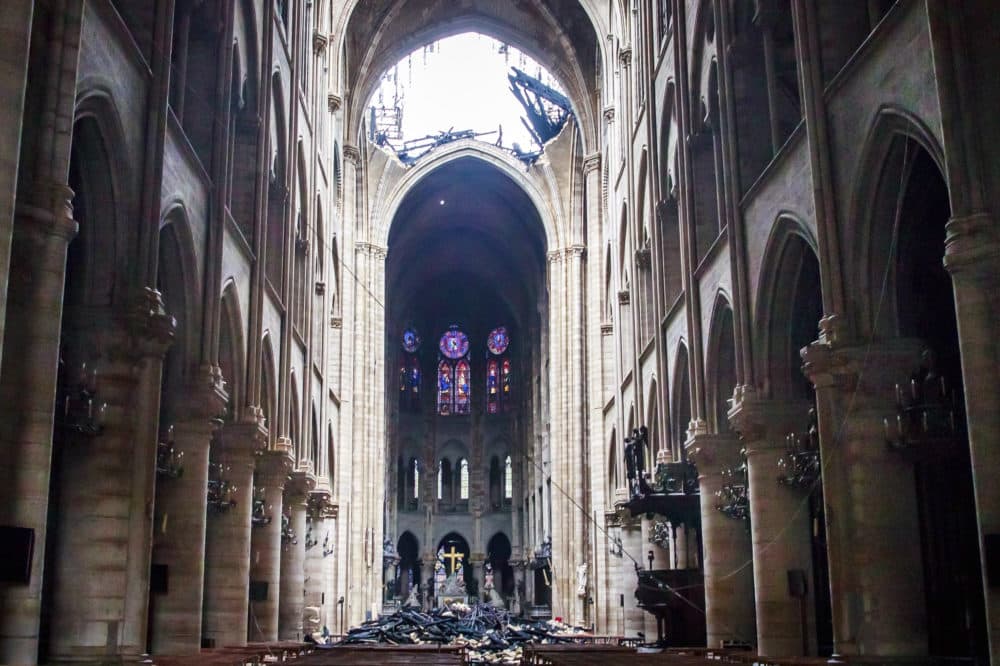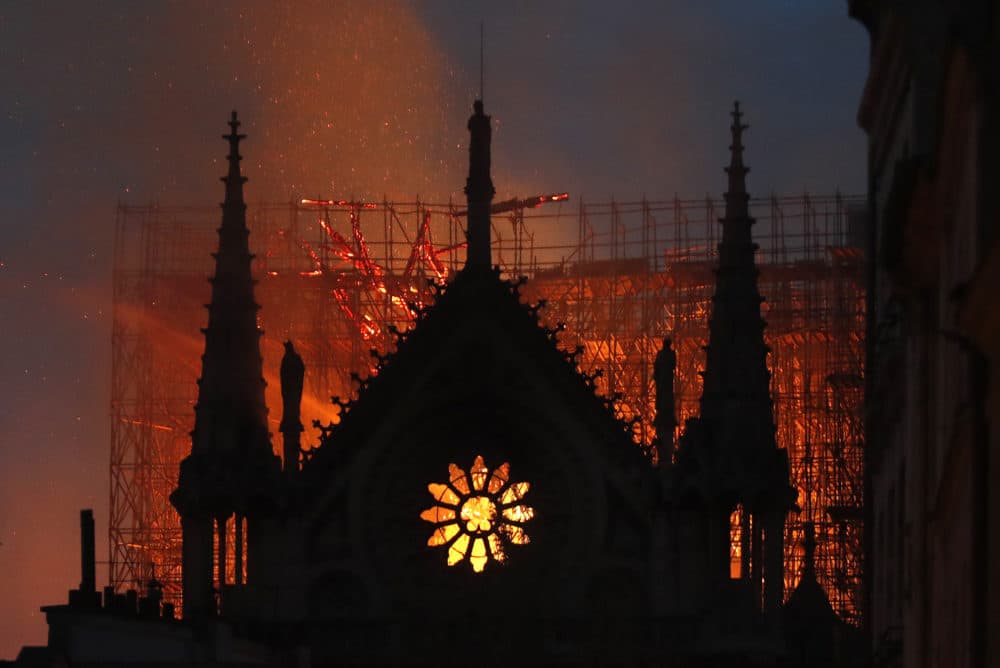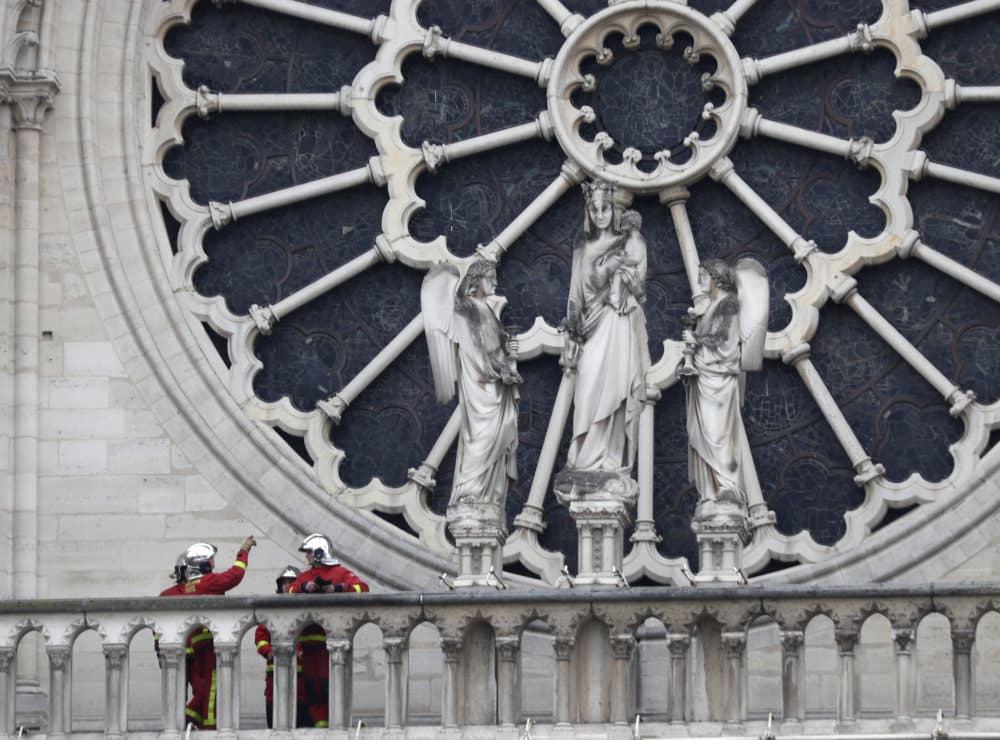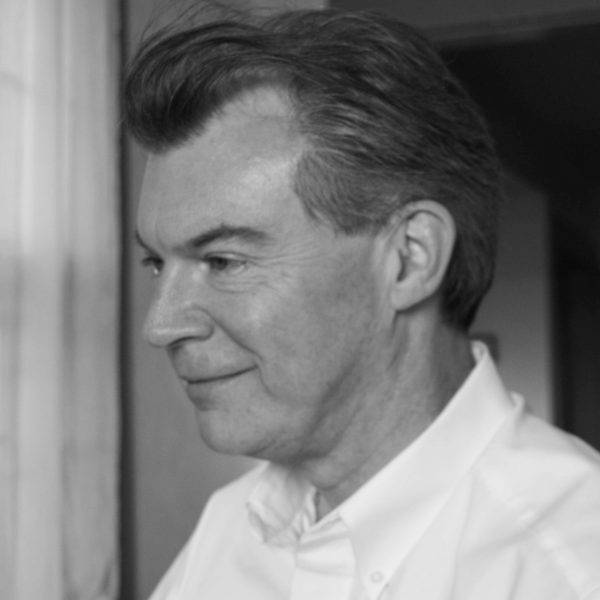Advertisement
Commentary
Notre Dame And The Possibility Of Transcendence

When I told my friends and family in that I was leaving the country this year to take a job in Paris, most of them thought I was lucky.
When I told them I was going to take up a job in the church, most of them thought I was crazy.
After all, France is among the most secular nations in all of Western Europe. Forty percent of French citizens say they don’t believe in any kind of deity, at least according to the 2010 Eurobarometer poll. Out of all the European Union’s 27 countries, France is the fifth highest on the atheist scale, and the largest country by far in the top five.
It’s not just that few people believe in God in France; as a general rule, the stance of the state is not neutral, but plainly hostile to the life and work of faith communities. The separation of church and state is so strictly observed that churches are actively discouraged from undertaking charitable work, which is regarded as the exclusive purview of state power.
There are reasons, ancient and modern, for this. The church throughout Europe had a long history of abusing its power over the faithful. The emergence of radicalism in recent decades has brought renewed suspicion and scrutiny toward all belief — and has brought about an often unwise and clumsy reaction, even repression, from state authorities.

Yet faith persists, in quiet, often unseen ways. Just two weeks ago, friends who came to visit toured the ancient cathedral of Notre Dame. They happened upon a timeless scene playing out in a corner: a young couple, and a baby being baptized, made part of the community of the church.
Monday, the water of the font was no match for the inferno that consumed the ancient structure, centuries in the making, in a matter of hours. But with the still-smoldering ruin behind him, and with the shaken archbishop of Paris at his side, President Emmanuel Macron — the embattled leader of that least-faithful great European nation — spoke movingly of the place Notre Dame occupies at the center of the Parisian imagination.
It is not just that it is an ancient expression of the majesty and scale of gothic architecture; not just the setting but the wellspring of perhaps the most famous French novel.

It is not just that it is the home of the most spectacular collection of artwork made possible by the patronage of the faithful.
It is rather that through revolution and war, enemy occupation and secular neglect, Notre Dame has remained a place somehow able to make real, even to the hardest skeptic, the invitation of mystery and the possibility of inspiration.
The disaster of Notre Dame is not likely to revive Christian belief in any measurable way throughout France. The era of Christendom is well and truly over in Europe — and for that, most of us in the church say, thanks be to God.
But the long process of rebuilding may also rekindle anew an appreciation, if not for religion, then for the idea of faith and the possibility of the transcendent, even in this most jaded and materialistic of all the world’s capitals. The pain felt in the hearts of France is not merely from the loss of a building, but from ideas it has represented throughout the ages.
Those ideas are not only about rigid dogma and fallible institutions. At a much deeper level, they are about the folly of human self-confidence and the stubborn sense that something called the sacred can yet be glimpsed in this disenchanted world.
The embers will likely just have cooled by Sunday — Easter Day — the feast, for us, of resurrection. May Notre Dame rise again, for people of all faiths and none, as a sign of that enduring possibility.
